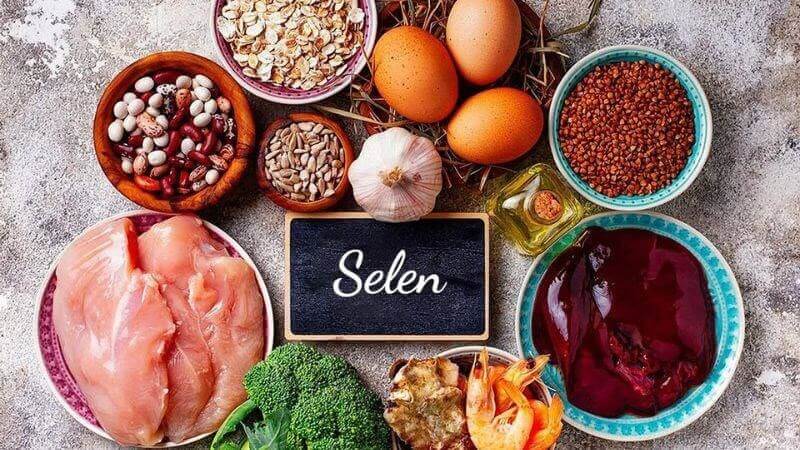Selenium, or selen, is a powerful trace mineral known for its anti-cancer properties and ability to inhibit the growth of malignant cells. Dubbed the “King of Anti-Cancer” in the world of micronutrients, this essential nutrient is required in small amounts daily but plays a vital role in overall health, especially for the elderly.
1. What is Selenium and Why is it Called the “King of Anti-Cancer”?
Selenium is an essential trace element that plays a crucial role in various bodily functions. A prominent study in Qidong, China, found that reasonable selenium supplementation can reduce cancer mortality rates by up to 50% and decrease the risk of liver cancer by 49%. According to TS.DS Nguyen Trung Tuong (QTN Medical System), selenium protects the body through four important mechanisms:
- Immune Boosting: Selenium maintains the efficient activity of NK cells and T cells, the forefront fighters in detecting and destroying cancer cells.
- Superior Antioxidant: As an essential component of glutathione peroxidase and thioredoxin reductase enzymes, selenium helps neutralize free radicals and protects cells from damage.
- Inhibits Metastasis: Selenium contributes to suppressing the invasion and spread of tumors.
- Reduces Side Effects of Chemotherapy and Radiation Therapy: Cancer patients supplemented with the right dose of selenium often experience improved hair loss, nausea, and mouth ulcers.

Selenium, the “King of Anti-Cancer,” is an essential trace element that participates in various bodily functions.
2. Selenium Deficiency: A Silent Enemy of the Elderly
In older adults, the ability to absorb selenium from food decreases over time. Additionally, chronic conditions such as diabetes, cardiovascular disease, and Alzheimer’s also deplete selenium reserves in the body. Selenium deficiency can lead to several health issues in the elderly, including:
- Immune system weakness, making them more susceptible to infections.
- Increased risk of cancer and cardiovascular disease.
- Dry skin, accelerated aging, and wrinkles.
- Decline in memory and slower reflexes.
3. 8 Selenium-Rich Foods That Are Easy to Find and Should Be Eaten Daily
If you’ve never paid attention to selenium and its sources, it’s time to start incorporating these foods into your diet:
3.1 Animal Liver
Animal liver is a rich source of selenium, iron, and vitamin A, benefiting eyesight, preventing anemia, and boosting immunity.
3.2 Seafood
Oysters, tuna, mackerel, shrimp, and seaweed are extremely high in selenium. Oysters, in particular, are known as a “natural selenium bank.”
3.3 Free-Range Chicken Eggs
Each egg contains approximately 15 mcg of easily absorbable selenium, making them ideal for the elderly and children.
3.4 Mushrooms
In addition to selenium, mushrooms contain beta-glucan, which helps enhance immunity and supports the immune system.

Mushrooms are rich in selenium and help boost immunity.
3.5 Asparagus
Asparagus has the highest selenium content among vegetables and is also rich in folate, benefiting cardiovascular health.
3.6 Nuts: Brazil Nuts, Walnuts, and Sunflower Seeds
Notably, just one Brazil nut per day provides 100% of the recommended daily intake of selenium.
3.7 Whole Grains and Brown Rice
Whole grains and brown rice are excellent sources of fiber, vitamin B, and natural selenium, making them ideal substitutes for white rice in daily meals.
3.8 Spirulina
Spirulina is not only a source of the “King of Anti-Cancer” selenium but also contains protein and other micronutrients that help improve overall health.
4. Guide to Proper Selenium Supplementation for the Elderly
- Selenium Requirement: 60–200 mcg per day.
- Prioritize Natural Sources: Selenium from food is absorbed much better than supplements.
- Consult a Doctor: If considering selenium-containing supplements, seek thorough medical advice.
- Avoid Overdosing: Excess selenium can lead to toxicity, digestive issues, and hair loss.
While selenium, the “King of Anti-Cancer,” is just a tiny micronutrient, it plays a pivotal role in increasing lifespan, preventing diseases, and maintaining cognitive health. For the elderly, daily selenium supplementation through natural food sources is a simple yet essential practice.






























